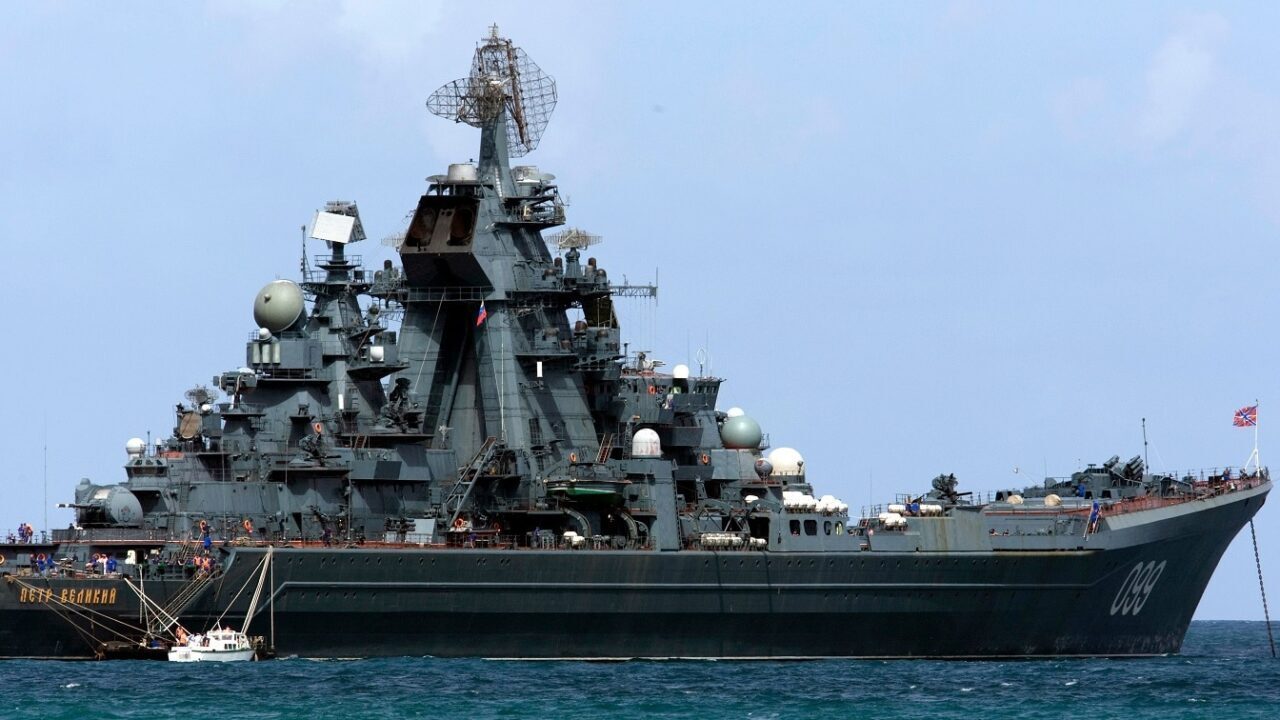While ground forces sort it out on the ground in Southern Ukraine and the Donbas, the Russian Navy is trying to reassert its authority in the Black Sea.
Instead of using warships, Russia is relying on naval aviation to contest the area. But Moscow’s efforts look empty after a series of humiliating defeats.
Russian Naval Aviation in Ukraine
In a recent estimate of the war, British Military Intelligence assessed that “the Naval Aviation component of Russia’s Black Sea Fleet has assumed a particularly important role in the Fleet’s operations as it struggles to deal with concurrent threats on the southern flank of the Ukraine war.”
“Naval Aviation is emphasizing maritime air patrol operations, highly likely with a primary mission of the early identification of uncrewed surface vessels,” British Military Intelligence stated.
The Russian Navy is making heavy use of Soviet-era Be-12 MAIL amphibious aircraft for maritime patrol missions. Designed in the 1950s, these aircraft operate from bases on the Crimean Peninsula.
The Russian Black Sea Fleet is also flying combat missions with Su-27 Flanker fighter jets and Su-24 Fencer bombers in the area, conducting maritime strike missions against Ukrainian positions. The most notable recent mission was a strike on the famous Snake Island, which was heavily contested in the first months of the war.
“With more Fleet activities likely relocating to Novorossiysk in the face of threats to Sevastopol, Russia is attempting to use naval air power to project force over the north-western Black Sea,” British Military Intelligence added.
However, the Russian Navy’s operations have suffered after a series of stunning strikes against its Black Sea Fleet.
A String of Humiliating Losses
In the last couple of weeks, the Russian Black Sea Fleet suffered significant losses to a string of Ukrainian attacks.
First, Ukrainian forces attacked the Sevastopol port with cruise missiles. Their target was the port’s Sevmorzavod shipyard.
Ukrainian munitions — either British Storm Shadow or French SCALP-EG cruise missiles — struck the landing ship Minsk and the attack submarine Rostov that were in the shipyard for repairs. Both vessels were almost completely destroyed. The Ukrainian missile salvo also damaged the shipyards, thus limiting the Black Sea Fleet’s ability to maintain and operate its warships.
Another daring strike followed a few days later, as the Ukrainian military attacked the headquarters of the Russian Black Sea Fleet with another salvo of cruise missiles.
The Ukrainian Ministry of Defense later claimed that the attack killed Adm. Viktor Nikolayevich Sokolov, the commanding officer of the Black Sea Fleet, along with 33 other officers, while also wounding more than 100 Russian troops.
With these strikes, the Ukrainians are sending a message: Crimea is close, and it belongs to us. The Black Sea Fleet should focus its energy and time on defense, rather than lobbing cruise missiles at Ukrainian cities, killing innocent people.
A 19FortyFive Defense and National Security Columnist, Stavros Atlamazoglou is a seasoned defense journalist specializing in special operations and a Hellenic Army veteran (national service with the 575th Marine Battalion and Army HQ). He holds a BA from the Johns Hopkins University, an MA from the Johns Hopkins’ School of Advanced International Studies (SAIS), and is pursuing a J.D. at Boston College Law School. His work has been featured in Business Insider, Sandboxx, and SOFREP.

